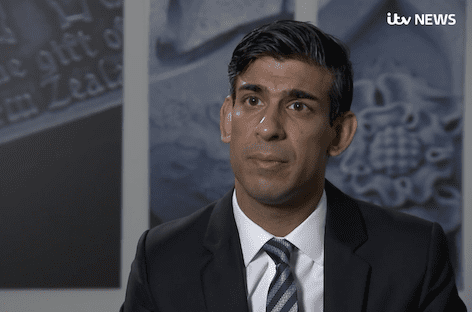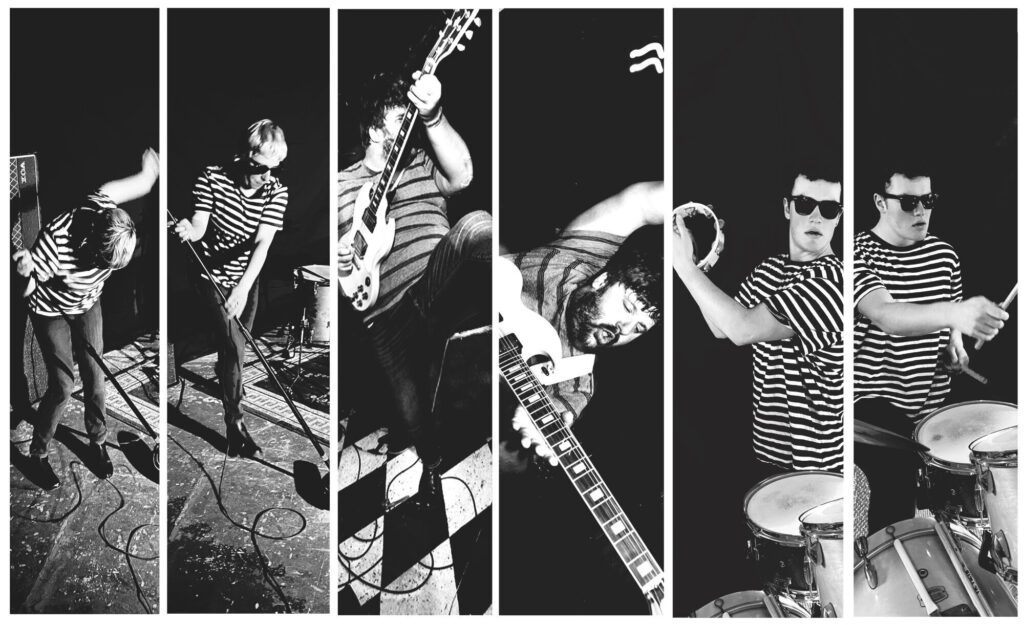UK chancellor Rishi Sunak suggests musicians should retrain to find new jobs in pandemic
In an interview published yesterday, Sunak suggests that musicians and artists who cannot find work in the pandemic, largely due to fact that government restrictions mean venues must remain closed or operate at low capacities, should retrain and find different jobs. “I can’t pretend that everyone can do exactly the same job that they were doing at the beginning of this crisis,” Sunak said, echoing the sentiment around his new “jobs support scheme” focused on securing “viable jobs.”
Sunak said workers and businesses will need to “find ways to adapt and adjust to the new reality,” and pointed to theatres livestreaming performances as an example. However, the ability of livestreaming to provide a secure, stable method of generating income for all artists remains unclear. Some UK venues have already adapted their formats in order to safely reopen in the pandemic, though recent changes to government restrictions now forces bars and pubs to close at 10 PM and puts them at risk of a £1,000 fine for playing music over 85-decibels and “allowing dancing.”
ITV has since updated the interview headline and story to be more general following a complaint from Sunak, but the article URL indicates the original headline: “rishi-sunak-suggests-musicians-and-others-in-arts-should-retrain-and-find-other-jobs.” The video interview remains, and here you can read a transcript of a portion where Sunak addresses musicians and artists.
ITV: If you’re a professional musician, what’s your message right now? If they can’t earn enough money to live, is your message to them, you’re going to have to get another job.
Rishi Sunak: My simple message to everybody is we’re trying to protect as many jobs as possible.
ITV: But they don’t think you are, in that sector, they don’t think you are.
RS: It’s a very sad time. Three quarters of a million people have already lost their jobs, we know that and that is likely to increase and many more people will. I can’t pretend that everyone can do exactly the same job that they were doing at the beginning of this crisis. And that’s why we’ve put a lot of our extra resource into trying to create new opportunities for people. So our “kickstart scheme,” for example, for young people who are at most at risk of becoming unemployed, all the way up to the age of 24, are going to benefit from a fully funded job placement.
ITV: But that’s a different job isn’t it? That’s you saying go and get a different job.
RS: That is a fresh and new opportunity for people. That’s exactly what we should be doing.
ITV: But we’re a country that created so many fabulous artists and musicians and actors, and you’re effectively saying, look, I know it’s hard but get another job.
RS: I think you’re not quite right in that there’s no work available for everyone at all.
ITV: For a lot of them, there isn’t.
RS: As in all walks of life, everyone’s having to adapt. I’m getting emails and seeing how theatre companies are adapting and putting on different kinds of performances. It is possible to do theatrical performances online as well and for people to engage with them that way and for new business models to emerge. Plenty of music lessons are still carrying on, the same thing is happening certainly in my household and elsewhere. Can things happen in exactly the way they did? No. But everyone is having to find ways to adapt and adjust to the new reality. And that’s what we all have to do, and that’s why we’re allowing that to happen but also providing new opportunities for people if that’s the right vehicle for them.
Sunak also cited the self-employed income support scheme and £1.57 billion UK Culture Recovery Fund as evidence of the government’s support for artists and musicians. The self-employment scheme covers six months of income total via two grants, and the pandemic relief package was confirmed to be made available to electronic music venues and festivals following the #LetUsDance campaign. While some venues have been notified they’ll be receiving grants from the Arts Council England-led fund, the October 5th announcement for remaining successful applicants has been delayed to the 12th.
In an interview with Emily Maitlis on BBC Newsnight, Sherelle spoke about how the week-long delay of the UK Culture Recovery grant is affecting those in the music industry: “There’ll be people who run clubs in London at the moment having really difficult conversations with their landlords whether they’re actually going to be able to pay their rent on time this week. And they were expecting that money to come in.”
The Six Figure Gang member also addressed Sunak’s suggestion of livestreaming as a means of income—”streaming isn’t profitable”—and his other “deplorable” comments. “Hearing what Rishi Sunak was saying today that, ‘We can’t save all of the jobs,’ and we ‘can retrain’ really broke my heart, and I’m sure it broke a lot of people’s hearts at home,” she said. “We’ve trained so long to be in our jobs and we’re completely suffering.”
Watch a clip of the interview.
“The whole industry, live music, is in complete dire straights. It’s very stressful for us all.”
DJ and radio presenter @iamsherelle talks to @maitils about how the coronavirus pandemic has affected the music industry and how self-employed artists are faring#Newsnight pic.twitter.com/SwznEjxBH3
— BBC Newsnight (@BBCNewsnight) October 6, 2020
A range of artists and music scene figures, including Daniel Avery, Doc Scott, Mat Dryhurst, Posthuman and Liam Gallagher, have also condemned Sunak’s comments.
The thing about @RishiSunak comments is this. The vast majority of people who are in the arts get into whatever they do for the love of it, not money, its a calling, its within you, music, dance, comedy, acting, film, art.
You just do not walk away from a life’s calling. #viable— Doc Scott (@docscott31) October 7, 2020
A recent survey by the Musicians’ Union found that one-third of UK musicians are considering “abandoning” their music career, with 70 percent of artists saying they’ve been unable to secure “more than a quarter of their usual work” and 36 percent reporting they “do not have any work at all.” 88 percent believe the UK government hasn’t done “enough” to provide support for musicians and the arts.





